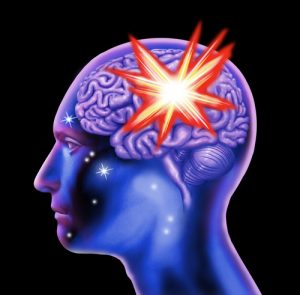fcMRI May Hold Key to Stroke Treatment
Two recent studies researching stroke recovery have highlighted new information on determining both the scope of stroke damage and giving an accurate prognosis for recovery.
The studies, conducted at the Washington University School of Medicine in Saint Louis, point to two major areas of concern when a patient suffers a stroke – brain lesions, which primarily affect vision and motor capabilities; and disruptions to the brain network connections, which impact memory. To date, traditional MR and CT scans have assessed the effects of a stroke by analyzing brain lesions. However, these methods do not measure the functional relationships between different areas of the brain, and the disrupted connections between them. Functional connectivity MRI (fcMRI) technology has not been utilized in clinical settings because there wasn’t convincing evidence to date that patterns of connectivity provide valuable information related to behavior. Researchers set out to evaluate whether functional connectivity MRI (fcMRI) could provide additional information for examining stroke damage to these connections.
“The holy grail of predicting stroke recovery is to develop an individualized algorithm that will reliably tell us, ‘This patient will recover 85 percent of his abilities and that patient only 55 percent,’” said Dr. Maurizio Corbetta, the Norman J. Stupp professor of radiology and senior author of both studies, in a statement.
In the study, researchers used fcMRI, which identifies significant disruptions in the brain after a stroke, to determine how networks in the brain communicated in both stroke and non-stroke patients. Neuropsychological tests to measure vision, motor function, language ability, attention, and visual and memory were also administered.
Graduate student Joshua Siegel explains “For memory, it turns out that it’s not damage to a specific location that really matters but whether the connections between locations are intact.”
A second study, led by graduate student Lenny Ramsey, studied damaged brain networks during a patient’s stroke recovery. Researchers were looking to determine if old pathways re-open in recovery, or if new pathways are forged. Ramsey’s research highlighted neglect, a type of attention deficit that affects about 25 percent of all stroke patients. Seventy seven stroke patients with neglect and 31 healthy subjects participated in this study, and each underwent fcMRI and neuropsychological tests. The most positive recoveries occurred in those stroke patients shown to exhibit brain connection patterns similar to those who had not experienced a stroke.
In his statement, Ramsay said “We think that the original networks form during early development to be as efficient as possible. So when a part gets damaged, in order to get back to normal functioning, you need to restore old wiring. Nothing else is going to work as well.”
According to the announcements regarding the studies’ findings, treatment for stroke is concentrated in the first few critical hours, when rapid intervention with drugs or surgery can prevent brain tissue from dying. Once damage has occurred, a patient’s options are limited. Dr. Corbetta states that additional studies are needed to prove that fcMRI scans in the initial hours after a stroke could offer valuable information in prognosis and recovery tracking. However, the hope is that the techniques developed in the studies will help to map patterns of dysfunction; in order to create more effective interventions that will allow the restoration of communication between the distinct regions of the brain.

